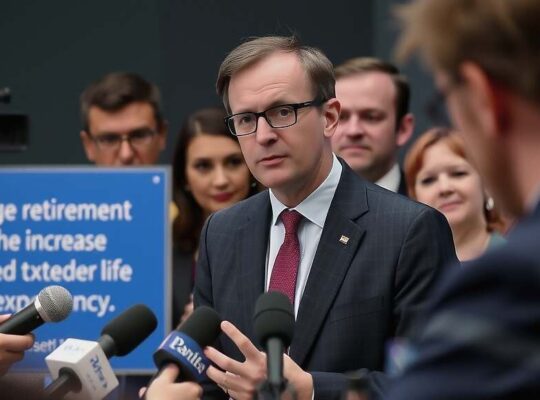The simmering dispute over Germany’s proposed pension agreement has resurfaced, highlighting a fundamental rift within the governing coalition and raising questions about the long-term sustainability of the country’s social safety net. Alexander Hoffmann, leader of the CSU’s parliamentary group, acknowledged growing criticism of the plan – which includes a commitment to maintaining the pension level at 48 percent – while reaffirming the need for a generous retirement system.
The core of the controversy stems from a lack of clarity within the coalition agreement concerning the years beyond 2031, a point underscored by Hoffmann. While both sides recognize the imperative of keeping the system financially viable, a significant divergence remains regarding the appropriate balance between austerity and maintaining existing benefits.
Hoffmann emphasized the political necessity of guaranteeing a continued commitment to pensioners, arguing that abruptly altering expectations would be a betrayal of current benefit recipients. “We must provide a clear message to today’s beneficiaries, rather than implying they will simply be out of luck after 2031 due to the financial constraints faced by future generations” he stated.
Recognizing the escalating tensions within the governing ranks, particularly with the younger generation within the Union faction, Hoffmann pointed to the planned pension commission as a potential avenue for resolution. He suggested a shift away from short-term financial solutions towards implementing structural reforms during the current legislative period.
However, the suggestion of relying solely on reforms – while seemingly aimed at appeasing younger voices within the coalition – raises concerns about the potential for further instability and a delayed reckoning with the inherent challenges facing the pension system. The acknowledgement that a future government could potentially revise the agreement also underscores a degree of political maneuvering and a conscious effort to avoid difficult decisions in the immediate term. The ultimate responsibility for navigating this complex political landscape and securing the long-term viability of Germany’s pension system, rests on the current government’s ability to translate promises of reform into tangible action.












